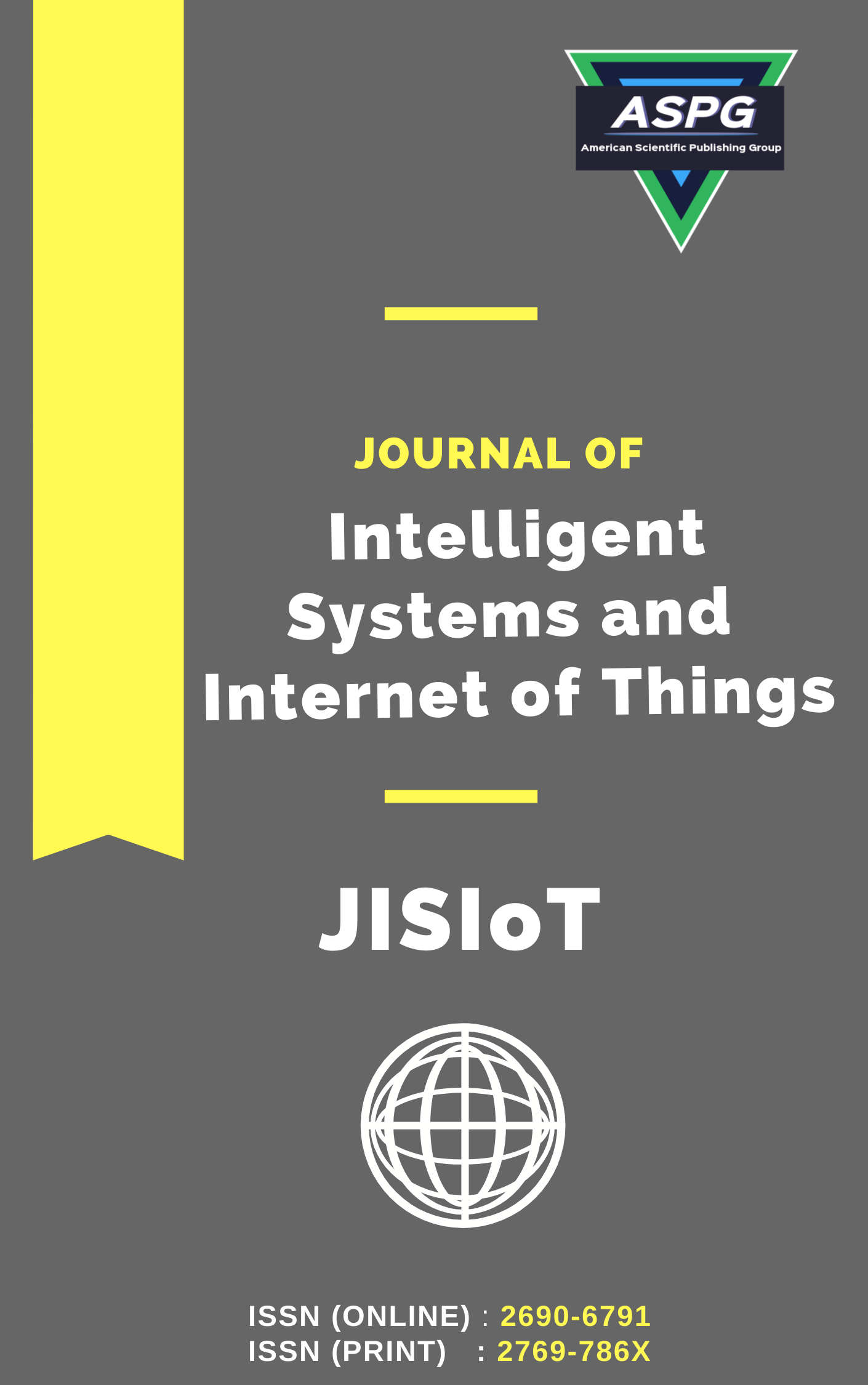

Volume 3 , Issue 2 , PP: 85-94, 2021 | Cite this article as | XML | Html | PDF | Full Length Article
Mahmoud Ismail 1 * , Shereen Zaki 2 , Heba Rashad 3
Doi: https://doi.org/10.54216/JISIoT.030204
Energy management in smart homes involves the use of technology to optimize energy consumption, reduce waste, and lower energy costs. Smart homes are equipped with various devices, sensors, and systems that are designed to monitor and control energy usage. We proposed a novel Energy Management System (EMS) that integrates Machine Learning (ML) techniques and IoT paradigms to optimize energy consumption and reduce energy costs for sustainable smart homes. In addition to the AI-based EMS, we propose integrating fog computing, a decentralized computing infrastructure, to improve the speed, accuracy, privacy, and security of the EMS. The fog nodes can collect data from the various sensors and devices in the smart home and process the data in real time, reducing latency and allowing for quicker decision-making. By processing data at the edge of the network, fog computing also reduces the amount of data that needs to be sent to the cloud, improving privacy and security. Experimental proof-of-concept simulations demonstrated the efficiency and effectiveness of our system in improving sustainability in smart homes.
Smart Homes , Sustainability , Intelligent Energy Management , Fog Computing
[1]. Khajenasiri, I., Estebsari, A., Verhelst, M., & Gielen, G. (2017). A review on Internet of Things solutions for intelligent energy control in buildings for smart city applications. Energy Procedia, 111, 770-779.
[2]. Zhou, B., Li, W., Chan, K. W., Cao, Y., Kuang, Y., Liu, X., & Wang, X. (2016). Smart home energy management systems: Concept, configurations, and scheduling strategies. Renewable and Sustainable Energy Reviews, 61, 30-40.
[3]. Al-Ali, A. R., Zualkernan, I. A., Rashid, M., Gupta, R., & AliKarar, M. (2017). A smart home energy management system using IoT and big data analytics approach. IEEE Transactions on Consumer Electronics, 63(4), 426-434.
[4]. Al-Ali, A. R., Zualkernan, I. A., Rashid, M., Gupta, R., & AliKarar, M. (2017). A smart home energy management system using IoT and big data analytics approach. IEEE Transactions on Consumer Electronics, 63(4), 426-434.
[5]. Marinakis, V., & Doukas, H. (2018). An advanced IoT-based system for intelligent energy management in buildings. Sensors, 18(2), 610.
[6]. Saad al-sumaiti, A., Ahmed, M. H., & Salama, M. M. (2014). Smart home activities: A literature review. Electric Power Components and Systems, 42(3-4), 294-305.
[7]. McMahan, B., Moore, E., Ramage, D., Hampson, S., & y Arcas, B. A. (2017, April). Communication-efficient learning of deep networks from decentralized data. In Artificial intelligence and statistics (pp. 1273-1282). PMLR.
[8]. Li, W., Logenthiran, T., & Woo, W. L. (2015, November). Intelligent multi-agent system for smart home energy management. In 2015 IEEE Innovative Smart Grid Technologies-Asia (ISGT ASIA)(pp. 1-6). IEEE.
[9]. Nilsson, A., Wester, M., Lazarevic, D., & Brandt, N. (2018). Smart homes, home energy management systems and real-time feedback: Lessons for influencing household energy consumption from a Swedish field study. Energy and Buildings, 179, 15-25.
[10]. L. Yu, R. Albelaihi, X. Sun, N. Ansari and M. Devetsikiotis, "Jointly Optimizing Client Selection and Resource Management in Wireless Federated Learning for Internet of Things," in IEEE Internet of Things Journal, vol. 9, no. 6, pp. 4385 -4395, 15 March15, 2022, doi: 10.1109/JIOT.2021.3103715.
[11]. Han, J., Choi, C. S., Park, W. K., Lee, I., & Kim, S. H. (2014). PLC-based photovoltaic system management for smart home energy management system. IEEE Transactions on Consumer Electronics, 60(2), 184-189.
[12]. Yu, L., Jiang, T., & Zou, Y. (2017). Online energy management for a sustainable smart home with an HVAC load and random occupancy. IEEE Transactions on Smart Grid, 10(2), 1646-1659.
[13]. Amer, M., Naaman, A., M'Sirdi, N. K., & El-Zonkoly, A. M. (2014, November). Smart home energy management systems survey. In International Conference on Renewable Energies for Developing Countries 2014 (pp. 167-173). IEEE.
[14]. Li, Tian, et al. "Fair resource allocation in federated learning." arXiv preprint arXiv:1905.10497 (2019).
[15]. Pinto, T., Faia, R., Navarro-Caceres, M., Santos, G., Corchado, J. M., & Vale, Z. (2018). Multi-agent-based CBR recommender system for intelligent energy management in buildings. IEEE Systems Journal, 13(1), 1084-1095.
[16]. Shareef, H., Ahmed, M. S., Mohamed, A., & Al Hassan, E. (2018). Review on home energy management system considering demand responses, smart technologies, and intelligent controllers. Ieee Access, 6, 24498-24509.
[17]. M Collotta, M., & Pau, G. (2015). Bluetooth for Internet of Things: A fuzzy approach to improve power management in smart homes. Computers & Electrical Engineering, 44, 137-152.
[18]. Javaid, N., Ullah, I., Akbar, M., Iqbal, Z., Khan, F. A., Alrajeh, N., & Alabed, M. S. (2017). An intelligent load management system with renewable energy integration for smart homes. IEEE access, 5, 13587-13600.
[19]. Javaid, N., Ullah, I., Akbar, M., Iqbal, Z., Khan, F. A., Alrajeh, N., & Alabed , M. S. (2017). An intelligent load management system with renewable energy integration for smart homes. IEEE access, 5, 13587-13600.
[20]. Li, T., Sahu, A. K., Zaheer, M., Sanjabi, M., Talwalkar, A., & Smith, V. (2018). Federated Optimization in Heterogeneous Networks. arXiv preprint arXiv:1812.06127.